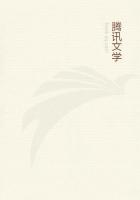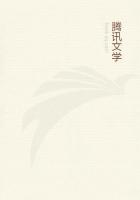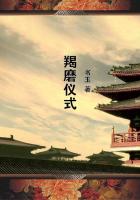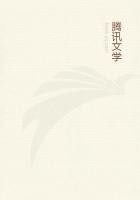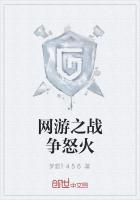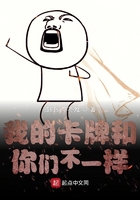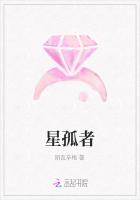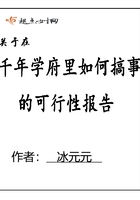Even less is known of the poem called the "Great Works": the title implies that it was similar in subject to the second section of the "Works and Days", but longer. Possible references in Roman writers (6) indicate that among the subjects dealt with were the cultivation of the vine and olive and various herbs.
The inclusion of the judgment of Rhadamanthys (frag. 1): `If a man sow evil, he shall reap evil,' indicates a gnomic element, and the note by Proclus (7) on "Works and Days" 126 makes it likely that metals also were dealt with. It is therefore possible that another lost poem, the "Idaean Dactyls", which dealt with the discovery of metals and their working, was appended to, or even was a part of the "Great Works", just as the "Divination by Birds" was appended to the "Works and Days".
II. The Genealogical Poems:
The only complete poem of the genealogical group is the "Theogony", which traces from the beginning of things the descent and vicissitudes of the families of the gods. Like the "Works and Days" this poem has no dramatic plot; but its unifying principle is clear and ******. The gods are classified chronologically: as soon as one generation is catalogued, the poet goes on to detail the offspring of each member of that generation. Exceptions are only made in special cases, as the Sons of Iapetus (ll. 507-616) whose place is accounted for by their treatment by Zeus. The chief landmarks in the poem are as follows: after the first 103 lines, which contain at least three distinct preludes, three primeval beings are introduced, Chaos, Earth, and Eros -- here an indefinite reproductive influence. Of these three, Earth produces Heaven to whom she bears the Titans, the Cyclopes and the hundred-handed giants. The Titans, oppressed by their father, revolt at the instigation of Earth, under the leadership of Cronos, and as a result Heaven and Earth are separated, and Cronos reigns over the universe. Cronos knowing that he is destined to be overcome by one of his children, swallows each one of them as they are born, until Zeus, saved by Rhea, grows up and overcomes Cronos in some struggle which is not described. Cronos is forced to vomit up the children he had swallowed, and these with Zeus divide the universe between them, like a human estate. Two events mark the early reign of Zeus, the war with the Titans and the overthrow of Typhoeus, and as Zeus is still reigning the poet can only go on to give a list of gods born to Zeus by various goddesses. After this he formally bids farewell to the cosmic and Olympian deities and enumerates the sons born of goddess to mortals. The poem closes with an invocation of the Muses to sing of the `tribe of women'.
This conclusion served to link the "Theogony" to what must have been a distinct poem, the "Catalogues of Women". This work was divided into four (Suidas says five) books, the last one (or two)of which was known as the "Eoiae" and may have been again a distinct poem: the curious title will be explained presently.
The "Catalogues" proper were a series of genealogies which traced the Hellenic race (or its more important peoples and families)from a common ancestor. The reason why women are so prominent is obvious: since most families and tribes claimed to be descended from a god, the only safe clue to their origin was through a mortal woman beloved by that god; and it has also been pointed out that `mutterrecht' still left its traces in northern Greece in historical times.
The following analysis (after Marckscheffel) (8) will show the principle of its composition. From Prometheus and Pronoia sprang Deucalion and Pyrrha, the only survivors of the deluge, who had a son Hellen (frag. 1), the reputed ancestor of the whole Hellenic race. From the daughters of Deucalion sprang Magnes and Macedon, ancestors of the Magnesians and Macedonians, who are thus represented as cousins to the true Hellenic stock. Hellen had three sons, Dorus, Xuthus, and Aeolus, parents of the Dorian, Ionic and Aeolian races, and the offspring of these was then detailed. In one instance a considerable and characteristic section can be traced from extant fragments and notices:
Salmoneus, son of Aeolus, had a daughter Tyro who bore to Poseidon two sons, Pelias and Neleus; the latter of these, king of Pylos, refused Heracles purification for the murder of Iphitus, whereupon Heracles attacked and sacked Pylos, killing amongst the other sons of Neleus Periclymenus, who had the power of changing himself into all manner of shapes. From this slaughter Neleus alone escaped (frags. 13, and 10-12). This summary shows the general principle of arrangement of the "Catalogues": each line seems to have been dealt with in turn, and the monotony was relieved as far as possible by a brief relation of famous adventures connected with any of the personages -- as in the case of Atalanta and Hippomenes (frag.
14). Similarly the story of the Argonauts appears from the fragments (37-42) to have been told in some detail.
This tendency to introduce romantic episodes led to an important development. Several poems are ascribed to Hesiod, such as the "Epithalamium of Peleus and Thetis", the "Descent of Theseus into Hades", or the "Circuit of the Earth" (which must have been connected with the story of Phineus and the Harpies, and so with the Argonaut-legend), which yet seem to have belonged to the "Catalogues". It is highly probable that these poems were interpolations into the "Catalogues" expanded by later poets from more summary notices in the genuine Hesiodic work and subsequently detached from their contexts and treated as independent. This is definitely known to be true of the "Shield of Heracles", the first 53 lines of which belong to the fourth book of the "Catalogues", and almost certainly applies to other episodes, such as the "Suitors of Helen" (9), the "Daughters of Leucippus", and the "Marriage of Ceyx", which last Plutarch mentions as `interpolated in the works of Hesiod.'

